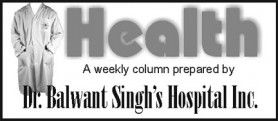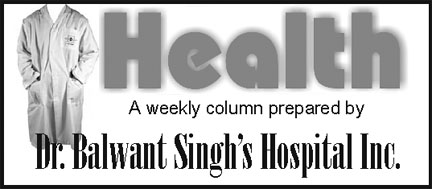By D Prashant Pruthi, MD (Paediatrics)
What is a febrile seizure?
When young children have a seizure (also called a convulsion), it is often caused by a fever above 102°F (38.9°C). These are called ‘fever seizures’ or ‘febrile seizures.’ Most febrile seizures last a minute or two, but they can range from a few seconds to more than 15 minutes. Febrile seizures can occur in children ages 6 months to 5 years, but are most common in toddlers aged 12 months to 18 months.
 If your child has a febrile seizure, he or she may become unconscious and roll his or her eyes back. Your child’s arms and legs may become stiff or shake and twitch. Your child may also vomit. After a seizure, your child may feel drowsy and confused.
If your child has a febrile seizure, he or she may become unconscious and roll his or her eyes back. Your child’s arms and legs may become stiff or shake and twitch. Your child may also vomit. After a seizure, your child may feel drowsy and confused.
Febrile seizures are frightening, but they aren’t as dangerous as they may appear.
How serious are febrile seizures?
Generally, febrile seizures aren’t harmful to a child. A febrile seizure doesn’t cause brain damage. Febrile seizures usually last a few minutes. It’s very unusual for a febrile seizure to last more than 15 minutes. However your child needs to be seen by your family doctor so the cause of the fever can be found and serious diseases like meningitis can be excluded.
How can my doctor tell if my child has had a febrile seizure?
Your doctor might order some blood and urine tests to be sure the seizures were not caused by something other than fever. If the seizure lasts longer than 15 minutes or if your child also has a serious infection, he or she may needs to be hospitalized.
What should I do if my child has a seizure?
● Put your child on his or her side so that he or she won’t choke on saliva or vomit.
● Don’t put anything in your child’s mouth.
● Don’t restrain your child’s movements during the seizure.
● Try to remain calm. Most seizures stop on their own within a few minutes, so keep your eyes on a clock or watch.
● Rush to the hospital if the seizure lasts more than 10 minutes or is accompanied by a stiff neck, vomiting or breathing problems.
● Don’t try to lower your child’s fever by placing him or her in a cold bath, especially during a seizure.
What should I do after the seizure has stopped?
See your doctor. He or she may want to find a cause for the fever.
Will my child have more seizures?
Most children won’t have another seizure. But the risk of another febrile seizure is slightly higher if your child is younger than 18 months, if there’s a family history of febrile seizures or if the fever wasn’t very high when the seizure occurred. Febrile seizures don’t cause brain damage. Children with febrile seizures often do fine in school and perform as well on IQ tests as their siblings who don’t have seizures.
How can I prevent febrile seizures?
If your child has a fever, you can use fever-lowering drugs such as Acetaminophen (Brand name: Children’s Tylenol) or Ibuprofen (Brand name: Advil, Children’s Motrin) to make your child feel better. However, this medicine won’t lower the risk of a seizure.
Using medicines in children older than six years to prevent febrile seizures usually is not recommended. They may cause side effects and may not work well for this type of seizure. Most children with febrile seizures do not need medicine. Some children may be treated with a medicine called Diazepam (Brand name: Valium) when they have a fever to lower the risk of another febrile seizure. This medicine usually doesn’t cause bad side effects, but sometimes it can make your child sleepy, hyperactive, or clumsy.
If my child has a febrile seizure, does this mean that he or she has epilepsy?
No. A single seizure does not mean your child has epilepsy. Even repeated febrile seizures aren’t considered epilepsy, because children outgrow the risk of having a seizure caused by fever. A child who has epilepsy usually has two or more seizures that aren’t caused by fever.
Febrile seizures don’t cause epilepsy. But some children who have febrile seizures will develop epilepsy. This is rare, but is more likely in children who have long febrile seizures, seizures that affect only part of the body, or more than one seizure within 24 hours. Children with cerebral palsy, delayed development, or other problems that affect the brain also are more likely to get epilepsy.





